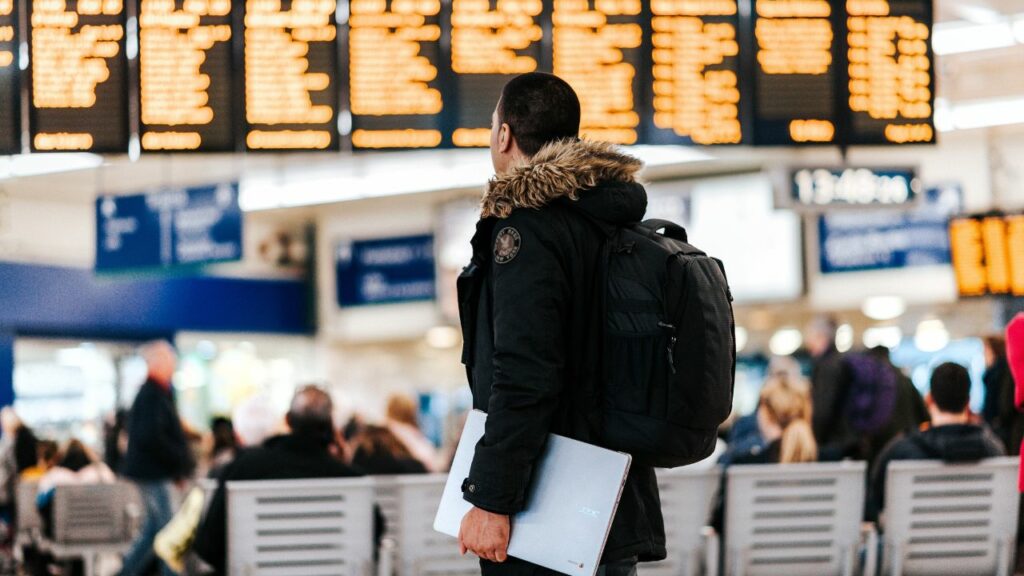
More often than not, humans learn things through trial and error or someone else’s misadventure, and travel is no exception. We’ve all heard the adage about being prepared, but more often than not, something comes along and surprises us. One of the least thought of travel misadventures impacts some travellers before their flight leaves the ground—flight booking class.
A change in travel plans is one of those unforeseen events that can ruin your travel experience. For those who have recently changed their travel plans, you’ve undoubtedly been impacted by the rules and penalties surrounding your ticket booking class.
Today, we will delve into a subject few are aware of until it impacts them. Even though every ticket issued has a booking class, few travellers know of its existence until they need to change or cancel their travel plans.
What is booking class?
The airline industry created various booking classes under each cabin class to maximise flight revenue. As the majority of travellers are aware, international flights are divided into three main cabin classes, first, business and economy class. There are several variations to these three main classes, with premium economy class being an excellent example of one such variation.

Within each cabin class, seats are placed into several booking classes; at face value, for the majority of airlines there is no difference in the service provided between the various booking classes within each cabin class. Qatar, is one such exception where lounge access and free seat selection is not available to some lower business booking classes.
Booking class codes consist of a singular alphabetic code; most airlines display the fare class for published fares on their website at the time of booking. Fare classes are also shown in the booking systems travel agents use to book your flight; each class represents tickets purchased at a particular price point.
As seat availability diminishes in each booking class, the class is closed, and travel agents and online booking systems start filling seats in the next available class.
We have compiled a brief list of booking codes for each booking class. The codes are provided for informational purposes only and are not intended to be an exhaustive list; as explained earlier, letter allocations for each booking class will vary from airline to airline. Some codes you might expect to see when booking your travel are;

- Y: Full-fare economy-class ticket. Commonly used business class booking classes among many airlines are D, C, J, Z each representing a price point and fare rules.
- J: Full-fare business-class ticket.
- F: Full-fare first-class ticket. Commonly used first class booking classes among many airlines are A, F-A is usually discounted fare, F is usually full fare.
For example, pre-COVID, Qantas Airlines had up to 15 booking classes within economy class alone. A Fare Basis Code further identifies booking classes and the rules and restrictions that apply to them.
How booking classes impact the price you pay

Now, this is where it gets interesting; every booking class fare is priced differently. Right now, you must be thinking—didn’t you say all booking classes within a cabin class deliver the same level of service?
Yes, you’re right, and this is where travel agents who understand the booking class system and in the customer’s best interest will always offer the cheapest booking class available within their chosen cabin class.
When the seats in the lower booking classes are full, travel agents begin offering seats in the next booking class within the same cabin class. The higher the booking class, the higher the premium the customer pays. Scarcity and demand drive how much each customer has to pay.
Booking class rules, cancellations and changes
There is another twist to the booking class phenomenon: booking class rules. Every booking class has individual rules or fare conditions that you, as a customer, agree on when booking and paying for your seat.
Booking class rules define whether a ticket is non-refundable or what charges a customer pays when cancelling or changing their travel dates—the higher your airfare is, the lower the fee for cancellations and changes.
Why changing your travel dates could cost you a small fortune.
Often customers are surprised by the penalties incurred when changing their travel plans. Depending on the airline you travel with, rules and conditions will vary, unique to each booking class. Be prepared; changing travel dates will likely cost you a small fortune.
Airline Charges and Agent Fees

Let’s look at a typical scenario where a customer has decided to change their travel dates on a ticketed Emirates flight; the fare rules applicable to the fare stipulate changes incur a charge of $400 per passenger. What customers do not realise is that the airline fee for changes is not the only cost associated with finalising your new travel plans; you will need to consider the following;
- Airline charge for changes per passenger
- Travel agents charge for changes
- Tax adjustments where applicable
- Adjustments to Frequent Flyer points, if applicable
- Change in booking class to facilitate your new travel dates
Now we have airline charges out of the way; let’s look at the other two items on the list, travel agent fees and booking class changes. Travel agents spend considerable time researching and finalising customer booking arrangements.
When changes are required, the travel agent acts on your behalf and facilitates those changes for you. Ticket changes can be equally as time-consuming as the original booking, requiring liaison between client, airline and ticketing office, for this reason travel agents typically charge an additional service fee.
As you can see, the cost of changing your travel plans comes at considerable cost, especially when more than one passenger is travelling. But wait, we still need to address the elephant in the room, and the costs involved when your booking class changes.
The impact of booking class changes

As we mentioned, the fare price is directly related to the booking class where your seats are ticketed. On occasions, it is possible to find the same booking class on a flight a few days on either side of your new travel date window. Sometimes, it is no longer possible to hold seats in the same travel class—this happens as the flight begins to fill.
Under this scenario, the only option is to select another booking class if you wish to travel on the dates requested. Booking class changes to your itinerary—even days later, may cost you hundreds or even thousands of dollars.
Planning your next trip might save you thousands.

Careful planning has always been the best way to ensure your trip goes smoothly; post-covid limited flights and supply chain issues have caused significant disruption to the flight experience. You can read more about this in one of our recent articles, “How COVID-19 has changed the way we book flights“.
To avoid the financial impact of flight booking class changes—our best advice to travellers is to consider their travel plans carefully before booking to avoid itinerary changes and cancellation fees. As our lives get busier and so much uncertainty in our lives, disruptions can occur. For this reason, we recommend protecting your travel plans with a decent travel insurance policy to guard against those unforeseen events that crop up so regularly these days.
Firstclass.com.au offers customers a specialised service, competitive fare pricing and benefit from 20 years experience in First and Business Class travel. Let us help you plan your next First Class travel experience—we’re just a phone call away.




Comments are closed.